
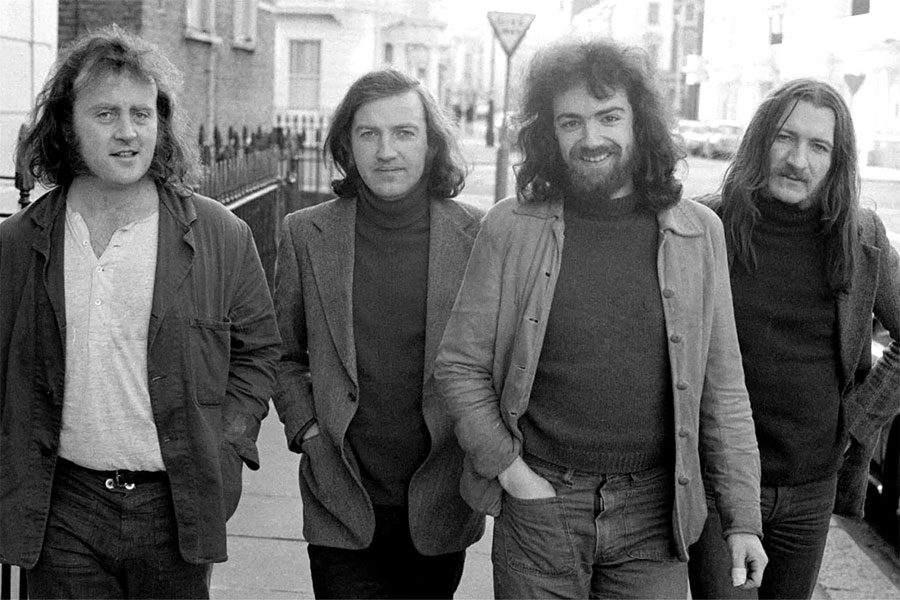
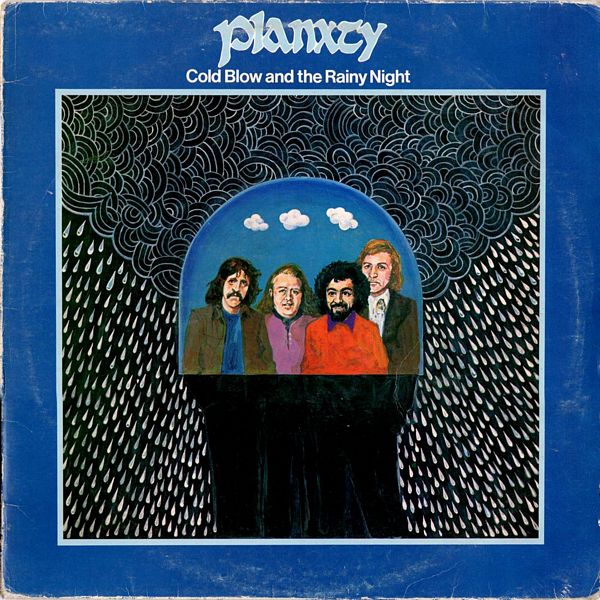 |
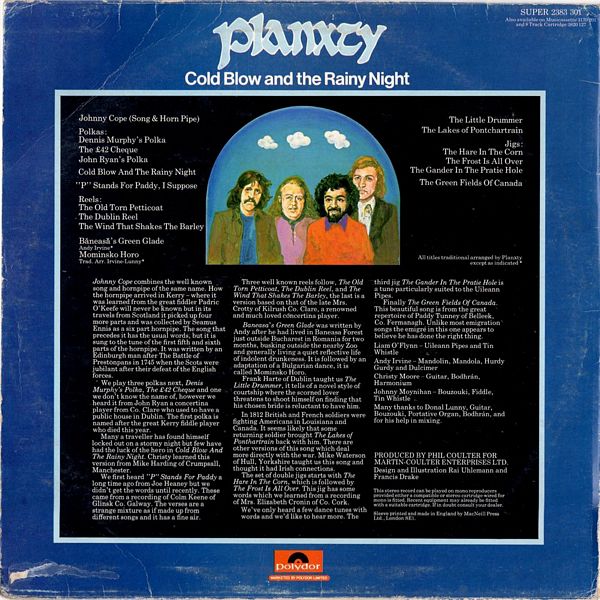
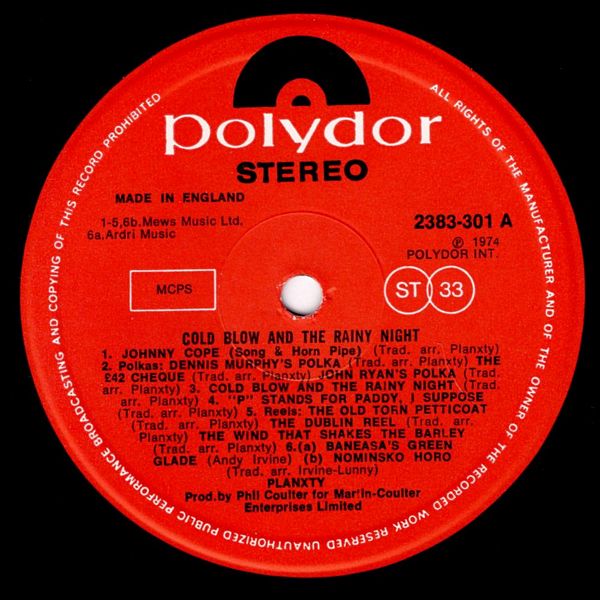
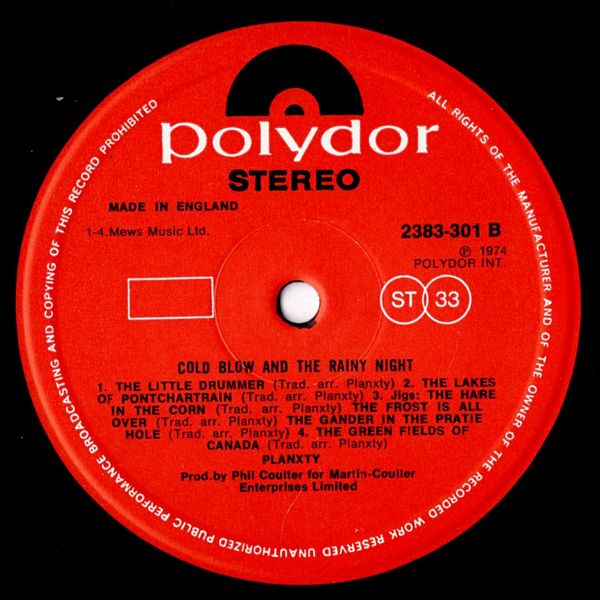 |
Sleeve Notes
Johnny Cope combines the well-known song and hornpipe of the same name. How the hornpipe arrived in Kerry - where it was learned from the great fiddler Padric O'Keefe will never be known but in its travels from Scotland, it picked up four more parts and was collected by Seamus Ennis as a six-part hornpipe. The song that precedes it has the usual words, but it is sung to the tune of the first fifth and sixth parts of the hornpipe. It was written by an Edinburgh man after The Battle of Prestonpans in 1745 when the Scots were jubilant after their defeat of the English forces.
We play three polkas next, Denis Murphy's Polka, The £42 Cheque and one we don't know the name of, however we heard it from John Ryan a concertina player from Co. Clare who used to have a public house in Dublin. The first polka is named after the great Kerry fiddle player who died this year.
Many a traveller has found himself locked out on a stormy night but few have had the luck of the hero in Cold Blow And The Rainy Night. Christy learned this version from Mike Harding of Crumpsall, Manchester.
We first heard "P" Stands For Paddy a long time ago from Joe Heaney but we didn't get the words until recently. These came from a recording of Colm Keene of Glinsk Co. Galway. The verses are a strange mixture as if made up from different songs and it has a fine air.
Three well known reels follow, The Old Torn Petticoat, The Dublin Reel, and The Wind That Shakes The Barley, the last is a version based on that of the late Mrs. Crotty of Kilrush Co. Clare, a renowned and much loved concertina player.
Baneasa's Green Glade was written by Andy after he had lived in Baneasa Forest just outside Bucharest in Romania for two months, busking outside the nearby Zoo and generally living a quiet reflective life of indolent drunkeness. It is followed by an adaptation of a Bulgarian dance, it is called Mominsko Horo.
Frank Harte of Dublin taught us The Little Drummer, it tells of a novel style of courtship where the scorned lover threatens to shoot himself on finding that his chosen bride is reluctant to have him.
In 1812 British and French soldiers were fighting Americans in Louisiana and Canada. It seems likely that some returning soldier brought The Lakes of Ponthartrain back with him. There are other versions of this song which deal more directly with the war. Mike Waterson of Hull, Yorkshire taught us this song and thought it had Irish connections.
The set of double jigs starts with The Hare In The Corn, which is followed by The Frost Is All Over. This jig has some words which we learned from a recording of Mrs. Elizabeth Cronin of Co. Cork. We've only heard a few dance tunes with words and we'd like to hear more. The third jig The Gander In The Pratie Hole is a tune particularly suited to the Uileann Pipes.
Finally The Green Fields Of Canada. This beautiful song is from the great repertoire of Paddy Tunney of Belleek, Co. Fermanagh. Unlike most emigration'1 songs the emigre in this one appears to believe he has done the right thing.